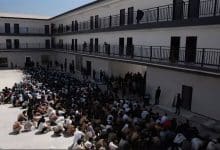Asia-Pacific aviation recovery boosted by China’s early reopening

Asia-Pacific aviation is set for a gradual recovery this year, with the International Air Transport Association (IATA) citing China’s earlier-than-expected reopening as a significant boost for the industry. Philip Goh, IATA’s Vice-President for Asia-Pacific, noted that revenue passenger kilometres (RPK) for the region in April reached 82% of the corresponding period in 2019.
Domestic RPK has already surpassed 2019 levels, while international travel has recovered to 66%. Goh expects international travel to return to normal by 2025, taking at least two more years to fully recover.
This year, global aviation is projected to earn a net profit of US$9.8 billion on revenue of US$803 billion. However, the Asia-Pacific region is expected to lag behind with a net loss of US$6.9 billion. Goh anticipates financial improvement for the region next year, but there is no clear evidence of profitability.
Outbound flights from China have been a decisive factor in pushing regional traffic towards normal levels. Zhao Hongliang, Chief Executive of Juneyao Air, revealed that his airline’s flights between China and Thailand have recovered to 40% of the 2019 level.
Goh said “China is a huge aviation market which just reopened a few months ago with few remaining restrictions. For instance, visa requirements for Singaporean travellers, compared to visa-free travel before Covid-19.”
Chai Eamsiri, Chief Executive of Thai Airways International, expects a significant increase in Chinese travellers and other markets during the remainder of the year. However, he highlighted the challenge of supply side dependency, with manufacturers’ spare parts and tools still not back to normal due to staff cuts during the pandemic.
IATA is urging ten countries and territories to remove travel barriers, such as vaccination requirements in Indonesia and random on-arrival testing in India. Goh advised against implementing a 300 baht tourism tax in Thailand, as it could deter travellers. He also believes that traveller demand has recovered faster than the restoration of flight capacity and expects prices to moderate once more airlines add seat capacity to the market and jet fuel prices decrease, reports Bangkok Post.
Latest Thailand News
Follow The Thaiger on Google News:


























